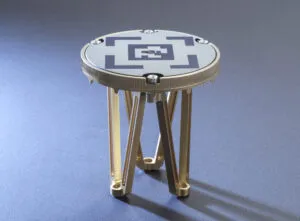The aim, say the companies, is the building of a resilient Positioning, Navigation, and Timing (PNT) infrastructure and keeping Earth’s orbit more safe and sustainable.
Specifically, it is Astroscale UK – based in Harwell – which is the UK subsidiary of the parent Japanese Astroscale company. And Xona is developing Pulsar, an advanced PNT satellite infrastructure based in LEO.
Pulsar operates alongside legacy systems, for example GPS. It delivers stronger signals, centimetre-level precision, and built-in protection against interference like jamming and spoofing.
Xona Space
Xona highlights that a more secure PNT architecture has become essential. This is for both national security and connected devices around the world.
“Resilient PNT is a national and economic priority,” said Giorgio Taylor, Director of Business Development at Xona UK & Europe.
“Pulsar delivers stronger, faster, and more secure navigational intelligence designed for the threats we face today. Our work with Astroscale reinforces our belief that space infrastructure should evolve to continue meeting user needs, not remain frozen in time.”
Astroscale
Basically the docking plates (pictured) will help support a more flexible satellite architecture and prevent space debris.
For its part, Astroscale highlighted the long-term stewardship needed for space assets and infrastructure. Andrew Faiola, Commercial VP and Director, Astroscale UK said:
“With tens of thousands of satellites being launched in the coming years, we have to build the infrastructure in space with long-term stewardship in mind.”
“Our docking plates make Xona’s satellites ready for the future, whether that means extending their life, removing them responsibly, or upgrading their capabilities. It is a great example export-led growth of the emerging ISAM industry from the UK.”
Image: Astroscale – Docking plate
See also: Astroscale wins patent for repeated active debris removal

